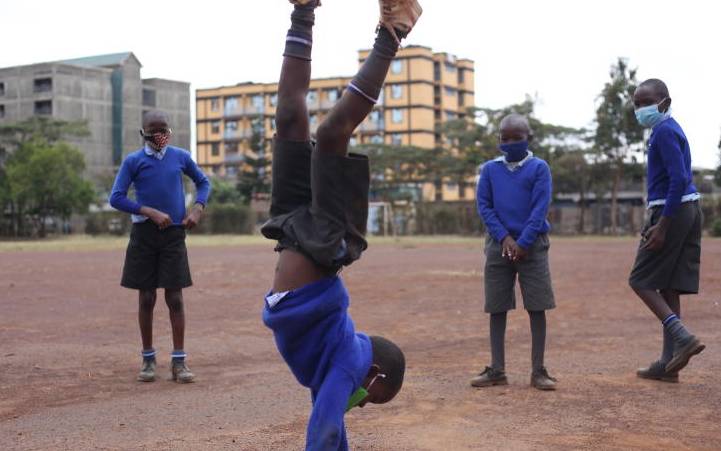×
The Standard e-Paper
Smart Minds Choose Us

Pupils at Githunguri Ranching primary school in Ruiru play at the school field during breaktime, schools were reopened after close down because of Covid-19 Pandemic. [Wilberforce Okwiri, Standard]
In the wake of Covid-19, the main focus of education stakeholders should be the efficiency and effectiveness of the health systems in educational institutions. This is because they form part of the much-touted Education 2030 Agenda.